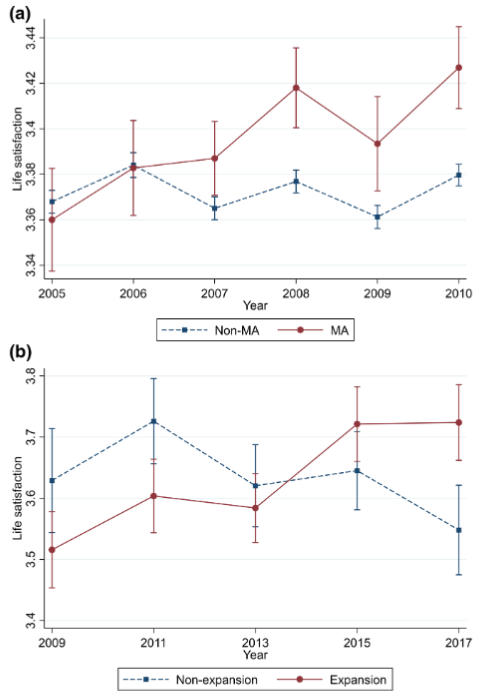According to a recent paper by Kim and Koh (2022), the answer is ‘yes’. Using data from BRFSS and PSID, the authors use a difference-in-difference strategy which identifies the impact of health insurance on subjective well being using two policy changes: (i) the Massachusetts health insurance mandate implemented in July 2007 and (ii) the Affordable Care Act’s Medicaid expansion to individuals with family income up to 138% of the federal poverty limit.
…Massachusetts’ reform improved non-elderly residents’ overall life satisfaction by 0.83 of a standard deviation (SD) per health insurance coverage, and the ACA Medicaid expansion improved non-elderly low-income adults in expansion states by 1.36 per Medicaid coverage.
The figure below summarizes these results:

The authors also find that a 2005 Medicaid disenrollment in Tennessee lead to lower levels of subjective well being. Note that life satisfaction is measured rather crudely using the question “In general, how satisfied are you with your life” from BRFSS where patients can answer very dissatisfied, dissatisfied, satisfied or very satisfied. While BRFSS is used for the Massachusetts reform, they also use PSID for later years where respondents can answer a similar life satisfaction question in PSID as “not at all satisfied”, “not very satisfied”, “somewhat satisfied”, “very “satisfied” or “completely satisfied”.